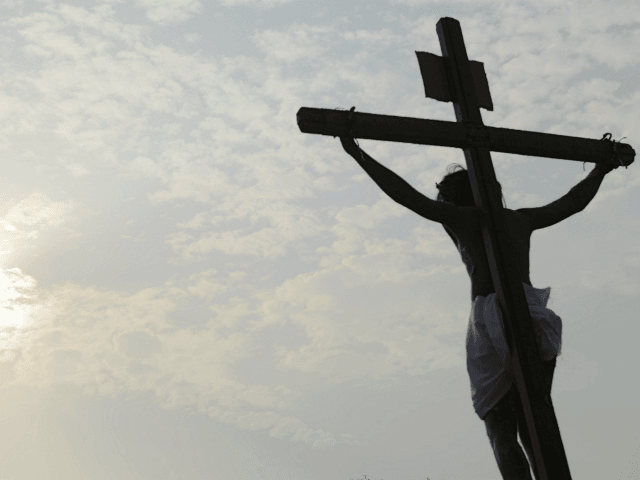Professional atheists and God-slayers love to target important Christian feasts to try their hand at debunking the foundations of Christianity, and this Easter is no different.
Writing for Raw Story, former evangelical Christian Valerie Tarico and atheist activist David Fitzgerald teamed up this Holy Week to insist that “the evidence that Jesus ever existed is weaker than you might think.”
Comparing belief in Jesus Christ to “witchcraft, bigfoot, [and] the idea that an American president was born in Kenya,” the two would-be myth-busters attempt to take down Jesus of Nazareth by undermining his very existence.
“The Christ at the heart of Christianity is a figure woven from the fabric of mythology,” they state. “The stories that bear his name draw on ancient templates imbedded in the Hebrew religion and those of the surrounding region.”
If Jesus even existed and was not the aggregation of various persons, they affirm, “he probably was a wandering Jewish teacher in Roman-occupied Judea who offended the authorities and was executed.”
“Beyond that, any knowledge about the figure at the center of the Christian religion is remarkably open to debate (and vigorously debated among relevant scholars),” they confidently assert.
Much of what the authors put forward are recycled old atheist tracts presuming to catch believing Christians in a “gotcha” moment.
Scores of biblical historians “have tried repeatedly to identify ‘the historical Jesus’ and have failed,” they declare. “The more scholars study the roots of Christianity, the more confused and uncertain our knowledge becomes.”
“The Gospels were not written by eyewitnesses,” they assert with conviction. Though most Christians believe that associates of Jesus wrote the four Gospel texts, “no objective biblical scholars think so.”
While the God-slayers insist that “textual analysis” suggests that the four Gospels are all “adaptations of the earliest gospel, Mark,” this decades-old theory has itself fallen out of favor among serious biblical scholars, something the authors would know had they done their homework.
Recent scholarship has, in fact, shown that the Gospel accounts were penned much closer to the time of Jesus’ death than previously thought, most certainly by eyewitnesses in the case of three out of four. Strong evidence points to a completion of the entire text of the New Testament before the year 100 AD.
The first three Gospels, for example, prophesied the fall of the temple of Jerusalem, which occurred in 70 AD. The fulfillment of the prophecy is never mentioned, however, which suggests that it had not happened as of the writing of the text.
There is a broad academic literature attesting to the historicity of the Gospels, such as Craig L. Blomberg’s The Historical Reliability of the Gospels and F. F. Bruce’s The New Testament Documents: Are They Reliable? to name just two.
While it is evident to all that the four Gospels contain apparent contradictions, for many scholars, this fact has been an argument in favor of their authenticity, rather than undermining it.
The Gospels continue to this day to be the best historical documents we have relating to the life and deeds of Jesus Christ. There are more than five thousand extant New Testament manuscripts, and many are dated within a few years of their authors’ lives, which means that the historical documentary evidence for the New Testament surpasses that of any other work of its time.
People reject Jesus Christ for different reasons. Some — like Valerie Tarico and David Fitzgerald — devote their lives trying to convince others that Christianity is false. That is, of course, their right.
Many, many others will continue to proclaim this Easter, as Christians have for twenty centuries, “He is risen. Alleluia. He is truly risen.”
Follow Thomas D. Williams on Twitter Follow @tdwilliamsrome

COMMENTS
Please let us know if you're having issues with commenting.